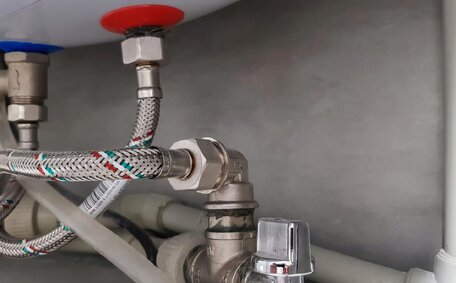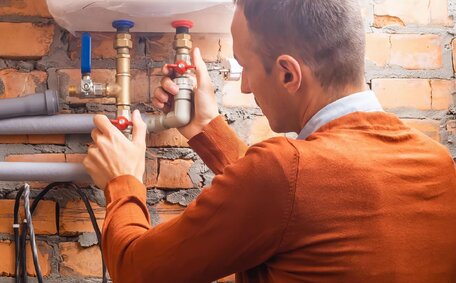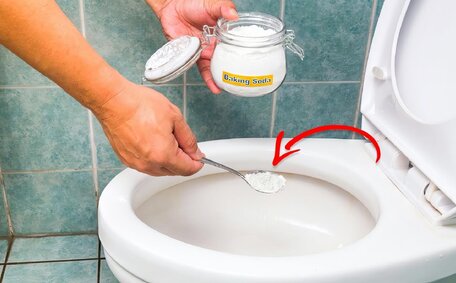Introduction to Hot Water Systems
A dependable hot water supply is crucial for daily comfort and routine activities. A malfunctioning hot water system can turn simple tasks such as showering, laundering, and dishwashing into a hassle. This article uses the terms 'water heaters’ and 'hot water systems’ interchangeably.
When your hot water heater has stopped working properly, it causes major discomfort. Owners of gas hot water systems might encounter problems such as:
- Running out of hot water without warning
- Water not getting hot enough
- Fluctuating cold water flow and hot water temperature
- A complete absence of hot water from your taps
Below, find troubleshooting tips that help restore your home’s hot water supply. We’ll guide you through potential causes and solutions, empowering you to resolve hot water issues on your own. We’ll also explain reasons why it may be necessary to call a plumber for professional North Epping assistance.
Continue reading for steps to restore and maintain consistent hot water in your home.
Understanding Gas vs. Electric Water Heaters
Most homes use either gas electric or purely electric water heaters. They make water hot using varying approaches:
Gas Water Heaters
Your instant gas hot water systems utilise natural gas or liquid petroleum to heat water on demand in tankless models or in a tank. Key components include:
- Gas valve - controls gas flow into the burner
- Pilot light - ignites the burner
- Thermocouple - senses the pilot flame, signals the gas valve to open and allow gas flow
Malfunction in these components can impact your hot water tank’s performance.
Electric Water Heaters
Electric water heaters use electric heating elements to heat up in the hot water heater tank. The elements extend into the tank through ports and are controlled by thermostats. Problems with heating elements and thermostats can result in water too tepid or cold.
It’s important to know if you have a gas or electric heater as troubleshooting steps differ. We’ll cover common problems and solutions for both in the following sections.
Checking Power Supply and Water Heater Settings
Start your troubleshooting by confirming that your gas or electric water heater is powered.
Check if the water heater’s gas supply line is delivering gas. Check if the pilot light has gone out and needs to be relit. Ensure the control knob is set to turn hot water to the correct temperature setting, typically around 60°C.
For electric water heaters, check the circuit breaker or fuse supplying when water heating power to the unit to rule out a tripped breaker or blown fuse causing loss of power. To prevent interruptions in your hot water supply, ensure the thermostats are correctly set to the recommended temperature range of 50°C to 60°C.
Ensuring power and proper settings for the hot water your house provides a solid start to hot water troubleshooting. From here, investigate common hot water issues like pilot light problems, faulty heating elements, reduced water pressure, and sediment buildup. If the problem persists, don’t hesitate to contact us; our North Epping plumbing experts are ready to assist.
Common Causes of Hot Water Loss
Several factors can contribute to the loss of hot water in your system:
Sediment Buildup
Over time, mineral deposits and sediment can lead to loss hot water efficiency due to accumulation at the bottom tank. This insulating layer can lead to reduced hot cold water consistency. Flushing the sediment, meaning your hot water can regain its functionality, is a solution to one of the most common water heater issues.
Broken Dip Tube
The dip tube channels incoming cold water to the tank’s bottom for efficient heating. If it’s damaged, cold and hot water may mix, causing inconsistent temperatures at your faucet. Replacing the tube is the solution.
Faulty Heating Elements
Defective heating elements in electric heaters may result in cold water output. If one or both burn out, this could result in your water heater working improperly, leading to tepid or warm water output. Checking your water heater’s resistance can confirm if water can be effectively heated or a replacement is needed.
Pilot Light Problems
For your gas hot water heaters, issues with the pilot light/igniter or thermocouple can prevent heating. Professional servicing, which includes cleaning, relighting, and part replacement, can address these issues.
Low Water Pressure
Adequate water flow is crucial for the water heater’s effective operation and maintaining sufficient hot water pressure to meet your home’s needs. Boosting water flow or the tank can handle higher household water pressure, coupled with adjusting the pressure relief valve, which can ensure your hot water reaches the desired temperature. If not, the water heater may need replacing to keep the heater working efficiently due to insufficient capacity or flow rate.
For complex repairs or new installations, reach out to our proficient North Epping plumbers. We’re here to get your hot water running again.
Troubleshooting Gas Water Heaters
Instant gas hot water heaters may encounter issues that hinder proper water heating. Here are some troubleshooting tips for common gas water heater problems:
Pilot Light Won’t Stay Lit
If the pilot light won’t stay lit, the thermocouple may need replacing. The thermocouple senses the pilot flame. If it malfunctions, the gas valve won’t open to allow gas to the burner.
- Relight the pilot light and see if it stays on. If not, replace the thermocouple.
- Inspect the pilot assembly for blockages preventing the flame. Clean out any dirt or insects.
- Have a plumber check the gas valve and pressure.
Insufficient Hot Water
Investigate for reduced gas flow, which could be due to a gas leak, obstruction, or a service disruption. Verify water heater settings are correct. Flush the tank annually to clear sediment blocking heating efficiency.
No Hot Water
For a lack of hot water, inspect the gas supply and, if necessary, relight the pilot. If the pilot won’t stay lit, service the thermocouple. For total gas issues, contact the gas company immediately.
If you experience ongoing or complex issues with your hot water supply, please contact us; we are the trusted North Epping plumbing professionals. We handle all gas water heater troubleshooting and maintenance, so give us a call to restore your hot water.
Diagnosing Electric Water Heater Problems
Electric water heaters may malfunction, leading to a loss of hot water. Follow these troubleshooting tips for common electric water heater issues:
If there’s no hot water, first check the power supply. Verify the circuit breaker or fuse is working and the heater has power. If the high temperature cut-off switch has tripped, call your service professional and press the reset button after allowing the heater to cool for 10-15 minutes.
Not Enough Hot Water
Insufficient hot water usually indicates problems with the heating elements. Test resistance - readings outside the operating range mean replacement is needed. Mineral buildup around elements can also reduce heating performance - flush the tank to restore efficiency.
Check the lower and upper elements.
Water Not Heating
Should the flow hot water not heat at all, one or both heating elements may require replacement. If element failure confirmed, shut off power and drain the tank partially prior to replacing the elements.
First check resistance as outlined above. Refill before restoring power.
For thorough electric water heater repairs or replacements, our expert North Epping plumbers are at your service. Call anytime!
When to Call a Professional Plumber
Though you can resolve many hot water issues independently, you may need a professional for more complicated repairs:
- Major gas water heater problems (e.g. leaks, extensive vent and combustion system issues)
- Major electric water heater problems (e.g. scorched tanks, multiple component failures)
- Complete replacement of water heater due to end of life or insufficient capacity/flow rate
- Complex piping repairs like leaks in difficult to access places
- When in doubt about a diagnosis or how to safely make any repair
Our licenced North Epping plumbers have seen it all when it comes to hot water systems. We can accurately troubleshoot your issues and recommend the most cost-effective solutions.
Reach out to North Epping Plumbing for assistance in:
- Hot water troubleshooting and repairs
- Gas and electric hot water system installation and replacement
- General maintenance to maximise efficiency and longevity
Get in touch at 1300 349 338 or email [email protected] to arrange service from our reliable, local plumbing experts.
Maintaining Your Water Heater
Regular maintenance is key to preventing issues and extending your hot water unit’s lifespan. Tasks to keep water flowing smoothly include:
Annual Tank Flushing
Turn off power water, gas and water lines. Consider a professional descaling if water your heater is heavily scaled.
Connect a hose to the drain valve and open it to effectively flush your tank. It’s crucial to flush the tank annually when hot water quality or heating efficiency declines.
Inspecting Anode Rods
Inspect the anode rod every 3-5 years. This part sacrifices itself to corrosion, protecting the tank.
Replace the hot water faucet if deteriorated, as periodic inspections ensure longevity.
Descaling Heat Exchanger
For tankless water heater models, flush the heat exchanger yearly to prevent mineral scale buildup impeding efficiency. Use descaling solution if needed.
Checking Valves, Fittings and Pipes
Inspect all of the water faucet your residence depends on for connections leaks annually and repair any drips immediately. Tight seals prevent faster wear.
Our North Epping plumbing specialists can manage your water heater’s maintenance, ensuring safe and efficient operation for the long term.
Replacing vs. Repairing Your Water Heater
When your water heater stops working properly, you have two main options - attempt repair or replace the unit. Consider the following factors when deciding:
Age and Condition
The average lifespan of a water heater unit is between 8 and 12 years. As systems age, they often become less efficient and more problematic. For hot water systems more than 10 years old, especially if heavily rusted or leaking, replacement might be advisable.
Repair Cost vs. Replacement
Compare repair costs to the price of a new, similar heater. Extensive repairs, close to or exceeding replacement costs, suggest investing in a new system rather than repairing.
Upgrading for Efficiency
Heat pump and tankless models represent a more energy-efficient option for water heating. Upgrading from a conventional tank often saves money long-term despite the higher initial cost.
Seek advice from a North Epping plumbing professional to explore your options and receive expert guidance. We provide unbiased recommendations on repairing or replacing your water heater based on your needs.
Contact us at 1300 349 338 for more advice and competitive quotes.






